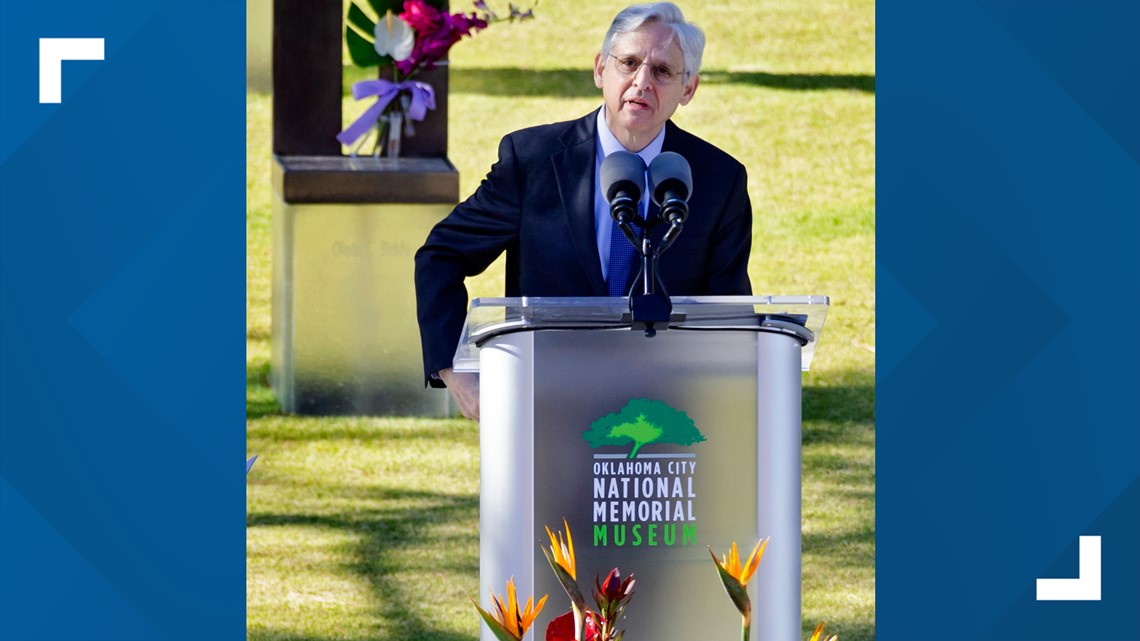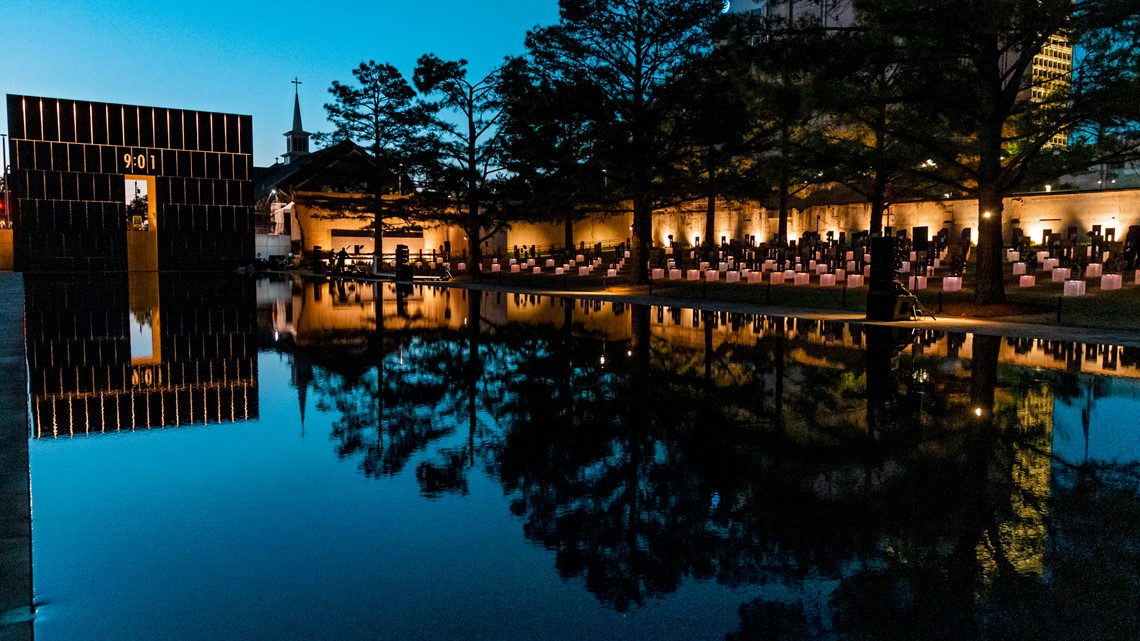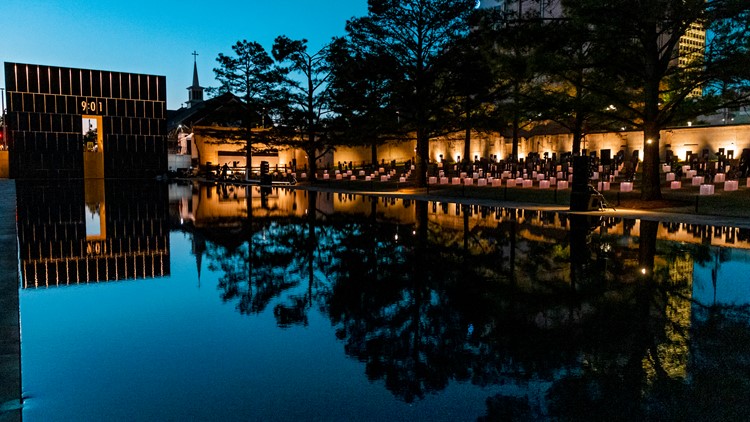OKLAHOMA CITY — Although 26 years have passed since a truck bomb ripped through a federal building in downtown Oklahoma City, killing 168 people, the same domestic extremism that led to the attack still exists today, U.S. Attorney General Merrick Garland said Monday.
Garland, who led the investigation into the Oklahoma City bombing in 1995 as a Department of Justice staffer, delivered remarks during a remembrance ceremony at the Oklahoma City National Memorial and Museum, his voice occasionally cracking with emotion.
“Although many years have passed, the terror perpetrated by people like Timothy McVeigh is still with us," Garland said, referring to the man ultimately convicted and executed for carrying out the attack. “Just last month, the FBI warned of the ongoing and heightened threat posed by domestic violent extremists.
“The Department of Justice is pouring its resources into stopping domestic violent extremists before they can attack, prosecuting those who do, and battling the spread of the kind of hate that leads to tragedies like the one we mark here today."
Hatred of the federal government motivated McVeigh and his co-conspirator, Terry Nichols, to commit what many experts still refer to as the deadliest act of domestic terrorism on U.S. soil. McVeigh was executed by lethal injection in 2001. Nichols was sentenced to life in prison.
The outdoor ceremony, attended by first responders, bombing survivors and family members of victims, was held between the gates of the memorial that mark the times, 9:01 and 9:03 a.m., before and after the explosion occurred. Behind the speakers were empty glass and metal chairs representing each person who died, including smaller chairs for the 19 children killed in the bombing, many of them inside the second-floor America’s Kids day-care center.
A quiet that fell over the memorial grounds during 168 seconds of silence to remember the victims was interrupted at 9 a.m. by church bells from a nearby cathedral.


Oklahoma's Republican Gov. Kevin Stitt also warned of the dangers of division within the country.
“Never in our lifetime has it been easier for us to be divided," Stitt said. “There are groups that refuse to listen to another point of view. They try to cancel anyone who sees the world differently.
“It feels like everywhere we turn, someone or something is trying to drive a wedge between us."
Blayne Arthur, whose mother Margaret “Peggy" Clark died in the bombing, said she believes the Oklahoma City National Memorial and Museum plays an important role in teaching a new generation about the dangers of hate.
“That's one of the most important purposes of the museum and the memorial is to tell that story to all generations and say there's a different way and hate is not the answer," said Arthur, who is now Oklahoma's secretary of agriculture, “and I think now it's really important to do that."




